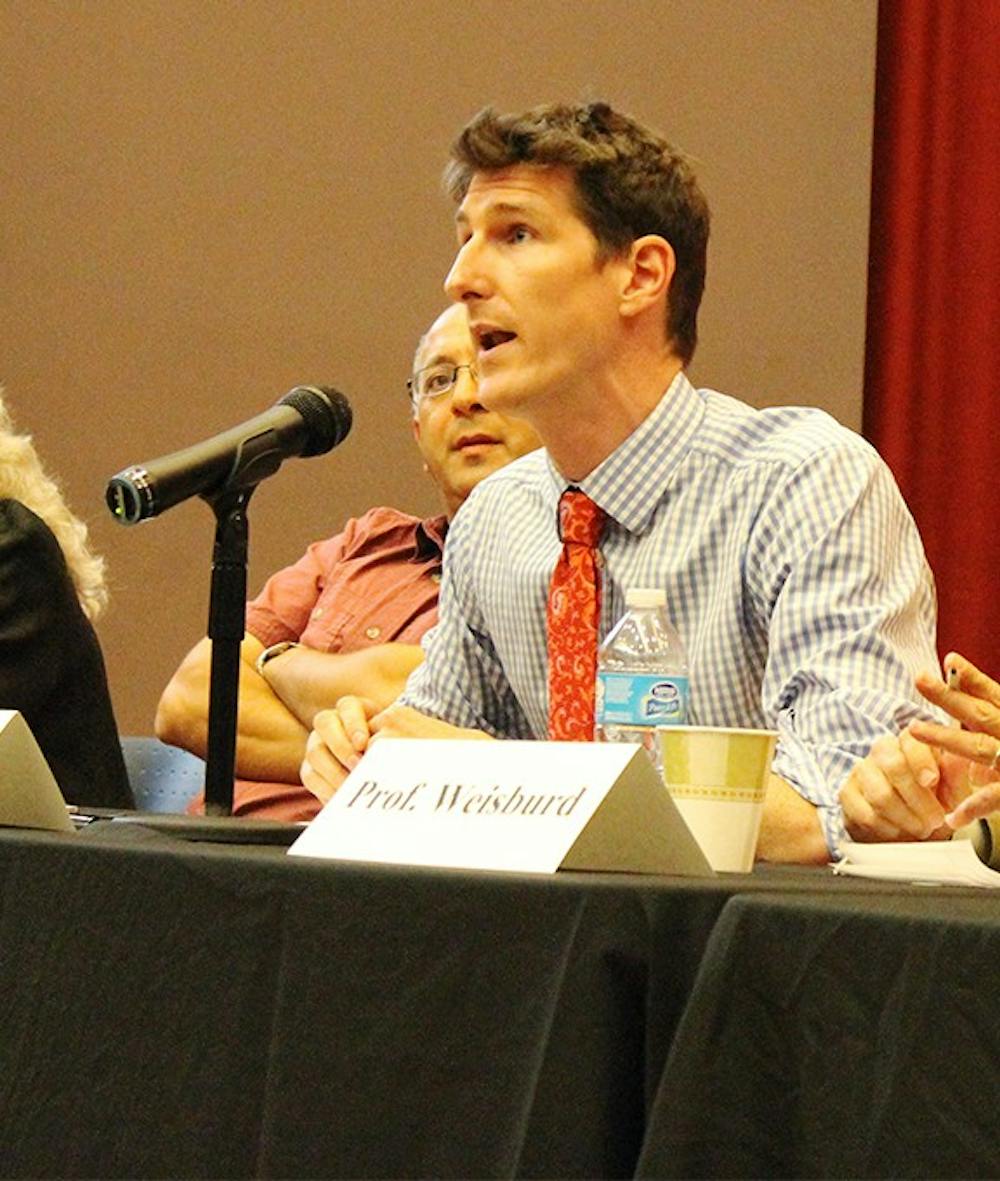The national discussion of a potential U.S. military intervention in Syria reached UNC’s campus during a round-table discussion Tuesday.
More than 250 students, faculty and community members gathered inside the FedEx Global Education Center for “Intervention in Syria? Problems, Prospects and Contexts.” The event was co-sponsored by the Carolina Center for the Study of the Middle East and Muslim Civilizations and the peace, war and defense curriculum.
An Aug. 21 chemical weapons attack outside Damascus prompted President Barack Obama to call for a military strike against Syrian President Bashar al-Assad’s regime.
But the eight-member panel of UNC experts was largely opposed.
“My hope is that the audience will be able to listen to a diversity of opinions on how the U.S. and the international community should move forward,” said Shai Tamari, associate director of the center.
Wayne Lee, a history professor and chairman of the peace, war and defense department, said the discussion was about understanding the conflict’s complexities.
“Any sort of decision-making should be based on a full understanding of its complexity and not a blithe assumption about the last set of questions,” he said.
Sarah Shields, a history professor, opened the panel. She said the conflict within Syria could only be resolved in the long run through negotiations, because history has proven military intervention to be ineffective in ending Middle Eastern hostilities. She said the international community should insist on bringing Syrian combatants to the table to discuss the country’s future.
“The conversations we hear today present us with a false dichotomy: do we intervene or do we do nothing?” she said. “Why is one of the options not diplomacy?”




